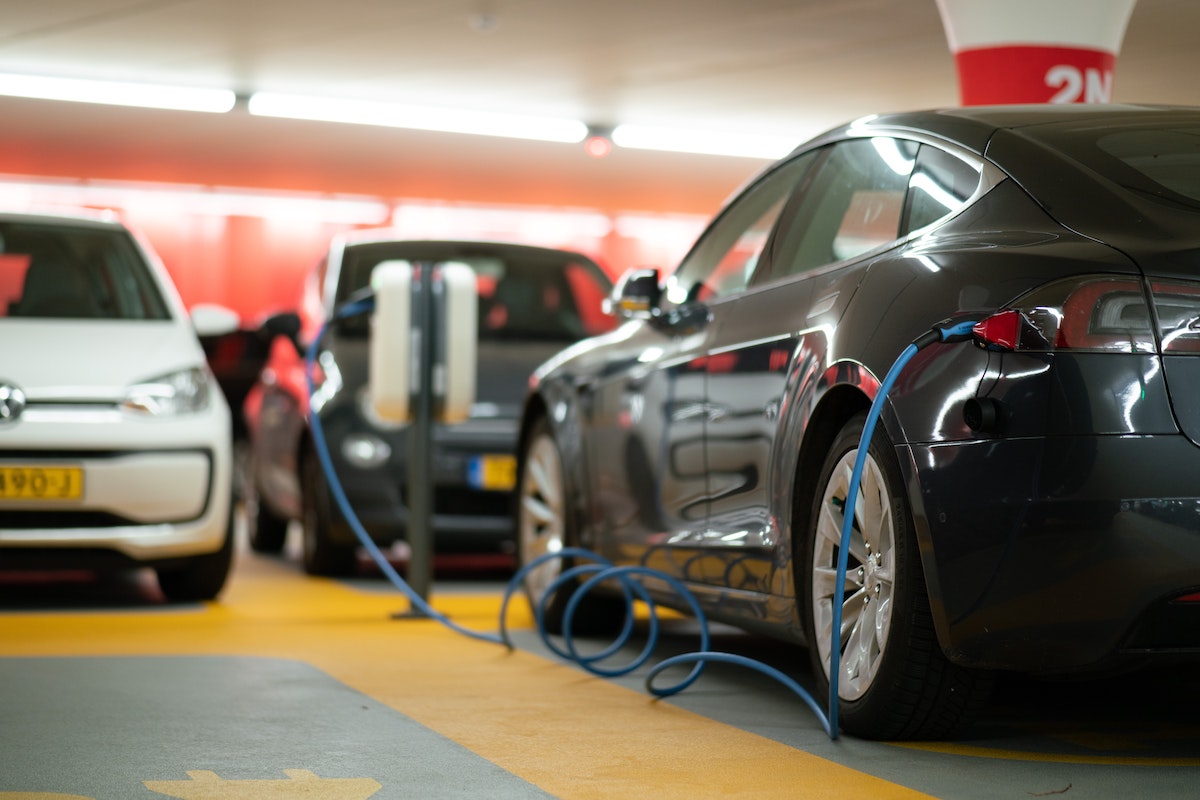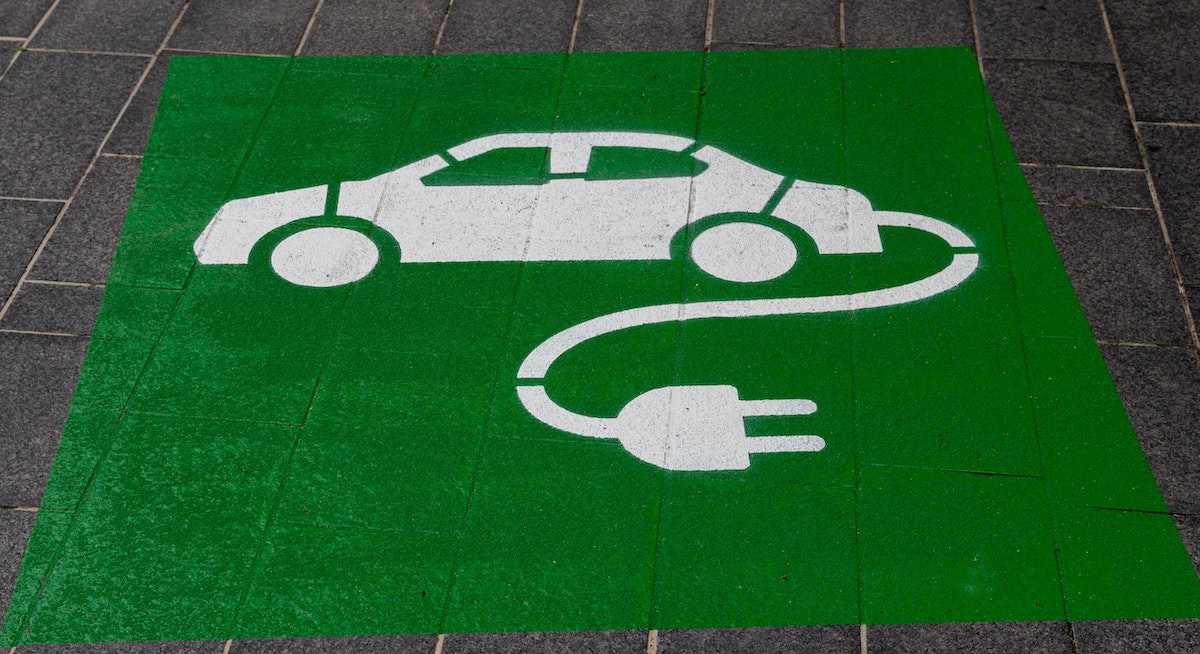Leading the Charge on Sustainable Transport
Enel X Global Retail is powering electric vehicles with ultrafast charging in Italy and beyond.
There are a lot of cars, trucks and buses on the road to net zero—more than 1.4 billion vehicles globally. Road transport worldwide is estimated to account for 15% of global CO2 emissions, and as the middle class grows in emerging economies, car ownership—at 1 billion and counting—shows no sign of slowing. While sales of electric vehicles (EVs) have dramatically increased and battery technology continues to improve, electric charging efficiency and infrastructure growth have lagged and must be accelerated to fulfill the climate commitments of governments, industries and companies.
Transitioning the vast global road fleet to electric vehicles powered by renewable energy requires the creation of extensive rapid charging networks to serve the coming deluge of EVs, which today represent a small but rapidly growing segment of the vehicle market. As EV adoption continues its exponential trajectory, it’s likely that public EV charging stations will soon be as ubiquitous as gas stations are today.
Ultrafast charging and network expansion spur EV adoption
Enel X Global Retail, Enel Group’s global business line offering innovative solutions that support the energy transformation, is leading the effort to make EV charging networks denser and more accessible, and has set a goal to install 736,000 public and private charging stations by the end of 2022. The company is focused on designing and developing sustainability and circular economy solutions, and has invested heavily in cutting-edge EV charging technology. It has already installed 180,000 charging points across the world, and is partnering with other innovators to implement charging solutions in countries including the U.S., Spain, Romania, the U.K., Italy, Chile and China.
The world of sustainable mobility is going through a deep and profound transformation that Enel is actively driving—as the leading player—and intends to continue fostering in Italy and across the globe. It is for this purpose that Enel has reorganized and created a new business line dedicated to electric mobility, with a focus on charging networks, that will permit the company to continue to lead this transformation and take advantage of the opportunities presented by the growth of the market.
Last spring, in collaboration with Volkswagen, Italy’s first ultrafast urban EV charging station was installed at the Enel X Store in Rome; the store’s four Ultra 350 JuicePumps can each charge an EV in just 20 minutes. This rapid charging technology and the ongoing creation of a high-power charging (HPC) network throughout Italy are expected to dramatically increase EV adoption and could serve as a model for other nations.
“The Enel X Store in Corso Francia marks a turning point in our strategy for the diffusion of electric mobility in Rome and Italy,” said Francesco Venturini, CEO of Enel X, at the store’s launch on March 11. “This is the first city area with ultrafast charging, with HPC chargers, which meets the need to fill up your car with energy in a short time, and others will be added in the main Italian cities. The goal is to offer a simple, reliable and fast charging experience.”

Innovative solutions make charging easy
Beyond designing, owning and operating electric charging infrastructure enabling the energy transition in Italy and beyond, Enel X offers a comprehensive suite of user-friendly solutions to manage its charging services, making it a complete technology provider for public and private installations.
Enel X’s JuicePass app offers the convenience of a single touchpoint for all charging services and makes it possible to manage EV charging at home and on urban and suburban routes throughout Italy and Europe. For home charging, JuiceBox is an affordable and streamlined Wi-Fi-enabled EV charging station produced with recycled plastic.
The innovative JuicePole is a high-power double-socket charging station that can charge two cars simultaneously and charge batteries up to 40% in 30 minutes; its sleek design won a Compasso d’Oro Award in 2020. Its large color LED screen is designed to encourage efficient interaction, and customers can be identified using RFID smart cards.
Almost 90% of the energy used to build the JuicePole comes from renewable resources, and its parts can be easily maintained, reused and recycled. Enel X offers the JuicePole platform and infrastructure to other operators that provide charging services through their own apps, and the company’s extended life cycle business model, which includes renewable JuicePole parts, has already been introduced in Italy and Spain, and will soon arrive in Latin America.
Tech partnerships accelerate e-mobility
Beyond providing technology solutions and renewable energy to power its charging stations, Enel X has partnered with diverse companies throughout its supply chain to increase the scope and sustainability of its products and services.
Enel X’s partnership with Volkswagen includes a joint venture to install more than 3,000 HPC points throughout Italy, and another partnership will see the installation of Enel X charge points at Pirelli tire centers. A three-way partnership between Enel X, Porsche Italia and the Q8 chain of filling stations was on track to install ultrafast HPC charging stations at 20 Q8 service areas by the end of 2021. Enel X has also partnered with Vestas Wind Systems and Novartis to electrify their vehicle fleets, providing them with cloud-based charging solutions and hundreds of charging stations across Italy and the Americas.
In the U.S., Enel X has partnered with Uber to support zero-emission EV driving through its JuiceEco product, which enables EV drivers to power their rides with 100% renewable energy. Available exclusively through Enel X, JuiceEco provides Green-e®-certified renewable energy certificates (RECs) to match the consumption of any EV anywhere in the U.S. with carbon-free electricity.
“JuiceEco provides EV drivers with a choice for their JuiceBox charging station’s electricity source,” said Giovanni Bertolino, Head of e-Mobility at Enel X North America, at the JuiceEco launch in September 2020. “This product is based on the proven concept that RECs provide a simple, traceable and effective way to support new renewable energy generation while allowing EV drivers to support the positive environmental benefits of 100% clean energy.”
Enel X’s wide-ranging partnership with Weltmeister, a Shanghai-based electric car brand, is intended to facilitate export of smart electric cars and provide post-sale service, improve the charging experience and implement vehicle to grid (V2G) technology. The agreement’s target markets for electric mobility expansion include Europe, China, Southeast Asia, the Middle East and South America.

Unlimited EV charging
OpenCharge, a monthly charging subscription that costs about as much as a tank of fuel, is another Enel X innovation implemented in Italy that is likely to serve as a model for similar services elsewhere. Authorized by the JuicePass app, OpenCharge allows unlimited charging of an electric car in a home or work parking space equipped with Enel X’s JuiceBox, as well as two charges a month on the road at public charging points—all powered by renewable energy.
“Driving electric cars is already a reality, and with OpenCharge, it will be even easier and more sustainable,” said Augusto Raggi, Head of Enel X Italia, at the program’s inauguration in April. “In collaboration with Enel Energia, we have developed a tailor-made offer for users to recharge their electric vehicle at home or at work using the domestic JuiceBox, with no consumption limits.”
Pioneer gives EV batteries a new life
In October, Enel X announced Pioneer—stylized as the airPort sustainability secONd lifE battEry stoRage project—a 30-MWh storage system at Rome’s Fiumicino Airport built entirely of electric vehicle batteries in their second life, which has won financing of over €3 million from the EU’s carbon-reduction Innovation Fund. The installation, slated for completion in 2024, will absorb excess energy produced by the airport’s solar plant and cover any energy demand peaks.
“For the first time, a large industrial site such as Fiumicino Airport, Italy’s largest airport, will have an energy storage system utilizing second-life batteries from electric cars,” noted Venturini in October. “This pioneering project is added to the other important innovation activities we are carrying out within the framework of the European Commission’s IPCEI calls for proposals to make the battery and electric vehicle supply chain increasingly sustainable, and once again confirms our commitment to combine innovation and sustainability.”
